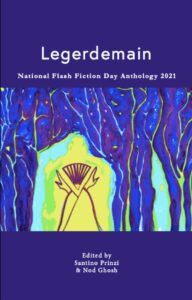National Flash Fiction Day is OPEN for submissions!
It's that time of year again; National Flash Fiction Day is OPEN for submissions to the 2022 NFFD Anthology & Microfiction Competition! We'll be reading submissions from 1 December to 15 February.
Please note that these are two separate projects run by two separate teams with two separate submissions processes. You can read about both below....
NFFD Anthology
The theme of this year's National Flash Fiction Day Anthology is FREEDOM.
What do you think of when you think of freedom? Freedom from, freedom to do, freedom to be?
Does your mind go to prisons and zoos or to protest marches and politics or to leaving the office on a Friday, packing a bag and heading off on holiday? Or is it simply freedom of thought? Or is it George Michael belting out that classic? But maybe you have a very different view of freedom; go on, surprise us!
Feel free to interpret FREEDOM however you wish, in 500 words or fewer. You do not need to include the word 'freedom' in your piece.
This year, we are thrilled to announce that we will be awarding two Editor's Choice Awards. The 2022 editors, Karen Jones and Chris Drew will each select one piece from the accepted stories to receive a £50 prize. Find out more about our editors here and keep an eye on our news feed for their interviews early next year.
You can read our full anthology submission guidelines here or go straight to our submission manager, Duosuma, where you can submit your work.
NFFD Microfiction Competition
We're reading flash of up to 100 words on any theme.
This year, we're offering:
- £150 for first place
- £100 for second place
- £50 for third place
- seven awards of £20 for highly commended pieces.
All winning and highly commended flash will be published both online and in the NFFD print anthology.
Our judges are that Christopher Allen, Joanna Campbell, Tracy Fells, and Damhnait Monaghan. We'll be posting interviews with our judges in the new year, but in the meantime, you can read more about our panel here.
We are not able to consider simultaneous submissions this year, so please don't send us work that will be under consideration elsewhere before we announce the results on or before 15 March 2022. Our full competition guidelines and details of how to submit by email can be found here.
Our Anthology and Microfiction teams look forward to reading your work!
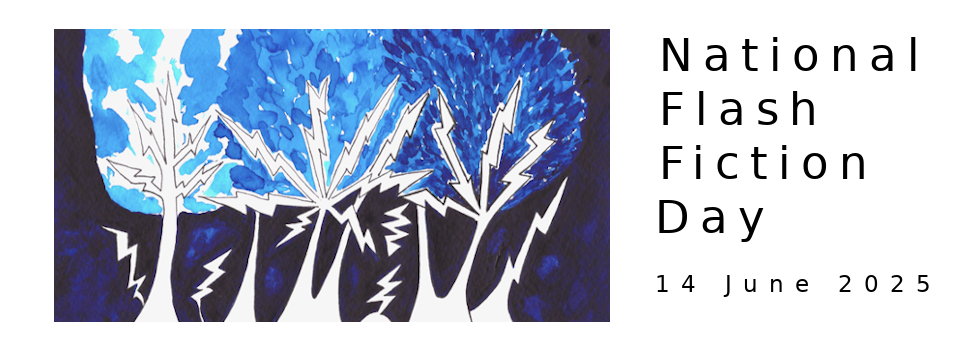
 Christopher Allen is the author of the flash fiction collection Other Household Toxins and the editor-in-chief of SmokeLong Quarterly. His work has appeared in Indiana Review, Split Lip, Booth, The Best Small Fictions and many other fine places. An instructor for more than 30 years, he teaches the flash narrative in workshops around the world, mostly online these days. He is a nomad.
Christopher Allen is the author of the flash fiction collection Other Household Toxins and the editor-in-chief of SmokeLong Quarterly. His work has appeared in Indiana Review, Split Lip, Booth, The Best Small Fictions and many other fine places. An instructor for more than 30 years, he teaches the flash narrative in workshops around the world, mostly online these days. He is a nomad.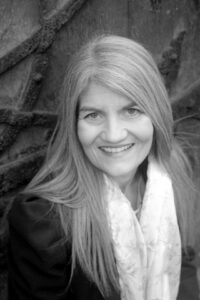 Joanna Campbell is a full-time writer from the Cotswolds. Her short stories have won first place in the 2011 Exeter Writers competition, the 2013 Bath Short Story Award Local Prize, the 2015 London Short Story Prize, the 2018 Magic Oxygen Literary Prize and the 2018 Retreat West Short Story Prize. Joanna’s flash fiction won second place in the 2017 Bridport Prize, for which her short stories have been shortlisted many times. Her novella-in-flash, A Safer Way to Fall, was a runner-up in the inaugural Bath Flash Fiction Award and published in How To Make A Window Snake (Ad Hoc Fiction). Her short story collection, When Planets Slip Their Tracks, was published in 2016 (Ink Tears). It was shortlisted for the Rubery International Book Award and longlisted for the Edge Hill University Story Prize. Her novel, Tying Down The Lion, was published in 2015 (Brick Lane Publishing). Her next novel, Instructions for the Working Day, will be published in 2022 (Fairlight Books). She is on Twitter at
Joanna Campbell is a full-time writer from the Cotswolds. Her short stories have won first place in the 2011 Exeter Writers competition, the 2013 Bath Short Story Award Local Prize, the 2015 London Short Story Prize, the 2018 Magic Oxygen Literary Prize and the 2018 Retreat West Short Story Prize. Joanna’s flash fiction won second place in the 2017 Bridport Prize, for which her short stories have been shortlisted many times. Her novella-in-flash, A Safer Way to Fall, was a runner-up in the inaugural Bath Flash Fiction Award and published in How To Make A Window Snake (Ad Hoc Fiction). Her short story collection, When Planets Slip Their Tracks, was published in 2016 (Ink Tears). It was shortlisted for the Rubery International Book Award and longlisted for the Edge Hill University Story Prize. Her novel, Tying Down The Lion, was published in 2015 (Brick Lane Publishing). Her next novel, Instructions for the Working Day, will be published in 2022 (Fairlight Books). She is on Twitter at 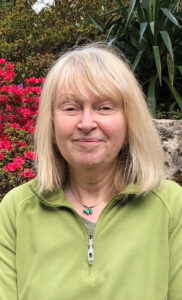 Tracy Fells was the 2017 Regional Winner (Europe and Canada) for the Commonwealth Short Story Prize. Her short fiction has been widely published in print journals and online, including: Granta, Brittle Star, Reflex Fiction, Popshot Quarterly, Firewords, Funny Pearls and the Bath Flash Fiction Award anthologies (2019 & 2020). She has been shortlisted for the Bridport and Fish Flash Fiction prizes, placed in the Reflex Fiction competition and Highly Commended in the NFFD Microfiction competition (2016 & 2020). In 2016 she was awarded an MA with Distinction in Creative Writing from Chichester University. She is a regular reader for several large short story competitions and leads writing workshops on short fiction. Tracy also writes novels and was a finalist in the 2018 Richard & Judy ‘Search for a Bestseller’ competition. Her debut novella-in-flash Hairy on the Inside was published by Ad Hoc Fiction in 2021. She tweets as
Tracy Fells was the 2017 Regional Winner (Europe and Canada) for the Commonwealth Short Story Prize. Her short fiction has been widely published in print journals and online, including: Granta, Brittle Star, Reflex Fiction, Popshot Quarterly, Firewords, Funny Pearls and the Bath Flash Fiction Award anthologies (2019 & 2020). She has been shortlisted for the Bridport and Fish Flash Fiction prizes, placed in the Reflex Fiction competition and Highly Commended in the NFFD Microfiction competition (2016 & 2020). In 2016 she was awarded an MA with Distinction in Creative Writing from Chichester University. She is a regular reader for several large short story competitions and leads writing workshops on short fiction. Tracy also writes novels and was a finalist in the 2018 Richard & Judy ‘Search for a Bestseller’ competition. Her debut novella-in-flash Hairy on the Inside was published by Ad Hoc Fiction in 2021. She tweets as 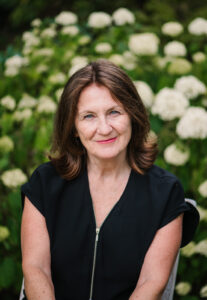 Damhnait Monaghan was born and grew up in Canada but now lives in the U.K. Her flash fiction has won or placed in various competitions and is widely published and anthologised. She has been nominated for the Pushcart Prize, Best Small Fictions, and Best Microfictions. Her novella in flash The Neverlands (V.Press) won Best Novella in the 2020 Saboteur Awards. Her debut novel New Girl in Little Cove is out now with Harper Collins.
Damhnait Monaghan was born and grew up in Canada but now lives in the U.K. Her flash fiction has won or placed in various competitions and is widely published and anthologised. She has been nominated for the Pushcart Prize, Best Small Fictions, and Best Microfictions. Her novella in flash The Neverlands (V.Press) won Best Novella in the 2020 Saboteur Awards. Her debut novel New Girl in Little Cove is out now with Harper Collins.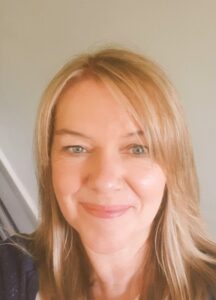 Karen Jones is a flash and short story writer from Glasgow, Scotland. Her flashes have been nominated for Best of the Net, Best Micro Fiction and The Pushcart Prize, and her story Small Mercies was included in Best Small Fictions 2019 and BIFFY50 2019. In 2021 she won first prize in the Cambridge Flash Fiction Prize, Flash 500, Reflex Fiction and Retreat West Monthly Micro and was shortlisted for To Hull and Back, Bath Flash Fiction, Bath Short Story Award and longlisted for Fractured Lit Flash Fiction Prize. Her work has been published in numerous anthologies and magazines. Her novella-in-flash, When It’s Not Called Making Love is published by Ad Hoc Fiction. She is Special Features Editor at New Flash Fiction Review.
Karen Jones is a flash and short story writer from Glasgow, Scotland. Her flashes have been nominated for Best of the Net, Best Micro Fiction and The Pushcart Prize, and her story Small Mercies was included in Best Small Fictions 2019 and BIFFY50 2019. In 2021 she won first prize in the Cambridge Flash Fiction Prize, Flash 500, Reflex Fiction and Retreat West Monthly Micro and was shortlisted for To Hull and Back, Bath Flash Fiction, Bath Short Story Award and longlisted for Fractured Lit Flash Fiction Prize. Her work has been published in numerous anthologies and magazines. Her novella-in-flash, When It’s Not Called Making Love is published by Ad Hoc Fiction. She is Special Features Editor at New Flash Fiction Review. Christopher M Drew is a writer from Yorkshire. He started submitting flash fiction in 2015 and since then has been published widely in online journals and print anthologies. He has won second prize in the Bath Flash Fiction (2016), Reflex Fiction (2018), and Forge Literary Flash Fiction (2019) competitions. His SmokeLong Quarterly story Alligator was selected for Best British and Irish Flash Fiction 2019, and When we were young, originally published in trampset, was selected for Best Microfiction 2021. He has been nominated for Best Small Fictions and Best of the Net, and was one of the founding editors of the historical flash fiction journal FlashBack Fiction. You can connect with Chris on Twitter (@cmdrew81), or through his website (
Christopher M Drew is a writer from Yorkshire. He started submitting flash fiction in 2015 and since then has been published widely in online journals and print anthologies. He has won second prize in the Bath Flash Fiction (2016), Reflex Fiction (2018), and Forge Literary Flash Fiction (2019) competitions. His SmokeLong Quarterly story Alligator was selected for Best British and Irish Flash Fiction 2019, and When we were young, originally published in trampset, was selected for Best Microfiction 2021. He has been nominated for Best Small Fictions and Best of the Net, and was one of the founding editors of the historical flash fiction journal FlashBack Fiction. You can connect with Chris on Twitter (@cmdrew81), or through his website ( Farhana Khalique is a writer, voiceover artist and teacher from London. Her stories are forthcoming or have appeared in the National Flash Fiction Day Anthology 2021, Leicester Writes Short Story Prize Anthology 2020, Reflex Fiction and more. Farhana has been shortlisted for The Asian Writer Short Story Prize, and she has won a Word Factory Apprentice Award. She is also the editor of Desi Reads and a submissions editor at SmokeLong Quarterly. Find Farhana
Farhana Khalique is a writer, voiceover artist and teacher from London. Her stories are forthcoming or have appeared in the National Flash Fiction Day Anthology 2021, Leicester Writes Short Story Prize Anthology 2020, Reflex Fiction and more. Farhana has been shortlisted for The Asian Writer Short Story Prize, and she has won a Word Factory Apprentice Award. She is also the editor of Desi Reads and a submissions editor at SmokeLong Quarterly. Find Farhana 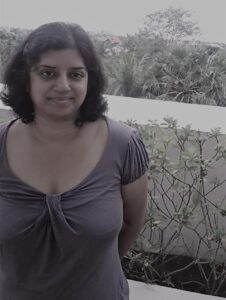 Anita Goveas is British-Asian and based in London. She’s on the editorial team at Flashback Fiction, an editor at Mythic Picnic’s twitter zine, and she’s an editor for the FlashFlood. She is one of the teachers on Dahlia Publishing’s 2021 ‘A Brief Pause‘ writer’s development programme. Her debut flash collection Families and Other Natural Disasters was published by Reflex Press in Sept 2020. Find her at
Anita Goveas is British-Asian and based in London. She’s on the editorial team at Flashback Fiction, an editor at Mythic Picnic’s twitter zine, and she’s an editor for the FlashFlood. She is one of the teachers on Dahlia Publishing’s 2021 ‘A Brief Pause‘ writer’s development programme. Her debut flash collection Families and Other Natural Disasters was published by Reflex Press in Sept 2020. Find her at  Johanna Robinson is based near Liverpool, UK, and has been writing short fiction for around five years. Her work has been featured in various magazines and anthologies, including SmokeLong, Reflex Press and Mslexia. In 2020, she won the TSS Cambridge Prize for Flash Fiction and the Bath Flash Fiction Award, and in 2019 Ad Hoc Fiction published her novella-in-flash Homing, which follows a Norwegian Resistance family in the Second World War. More of her work can be found at
Johanna Robinson is based near Liverpool, UK, and has been writing short fiction for around five years. Her work has been featured in various magazines and anthologies, including SmokeLong, Reflex Press and Mslexia. In 2020, she won the TSS Cambridge Prize for Flash Fiction and the Bath Flash Fiction Award, and in 2019 Ad Hoc Fiction published her novella-in-flash Homing, which follows a Norwegian Resistance family in the Second World War. More of her work can be found at  Dan Crawley is the author of the novella Straight Down the Road (Ad Hoc Fiction, 2019) and the short story collection The Wind, It Swirls (Cowboy Jamboree Press, 2021). His writing appears in a number of journals and anthologies, including JMWW, Lost Balloon, The North American Review, SmokeLong Quarterly: The Best of the First Ten Years 2003-2013, Wigleaf, Quarterly West, and Atticus Review. He is a recipient of an Arizona Commission on the Arts creative writing fellowship. Also, he is a two-time Best Small Fictions nominee, a two-time Best of the Net nominee, a Pushcart Prize nominee, and appears on the Wigleaf Top 50 longlist (2019, 2021). His work won a Bath Flash Fiction Award 2019 Novella-in-Flash highly commended prize. Recently, he has been a Contributing Editor for Best Microfiction and a Little Patuxent Review fiction reader. Find him at
Dan Crawley is the author of the novella Straight Down the Road (Ad Hoc Fiction, 2019) and the short story collection The Wind, It Swirls (Cowboy Jamboree Press, 2021). His writing appears in a number of journals and anthologies, including JMWW, Lost Balloon, The North American Review, SmokeLong Quarterly: The Best of the First Ten Years 2003-2013, Wigleaf, Quarterly West, and Atticus Review. He is a recipient of an Arizona Commission on the Arts creative writing fellowship. Also, he is a two-time Best Small Fictions nominee, a two-time Best of the Net nominee, a Pushcart Prize nominee, and appears on the Wigleaf Top 50 longlist (2019, 2021). His work won a Bath Flash Fiction Award 2019 Novella-in-Flash highly commended prize. Recently, he has been a Contributing Editor for Best Microfiction and a Little Patuxent Review fiction reader. Find him at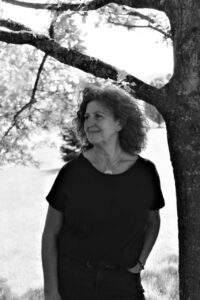 Jupiter Jones grew up on the north-west coasts of Cumberland and Lancashire. The first was wild and secretive, the second trashy and jaded; she loved them both and they haunt her writing. Following a brief spell in London to complete a PhD in Spectatorial Embarrassment at Goldsmiths, she now lives in Wales and writes short and flash fictions. She is the winner of the Colm Tóibín International Prize, and her work has been published by Aesthetica, Brittle Star, Fish, Scottish Arts Trust, and rejected by many, many others. Her novella-in-flash The Death and Life of Mrs Parker was shortlisted in the Bath 2021 competition and will be published by Ad Hoc Fiction later this year, and Lovelace Flats was runner up in the Reflex Press novella competition and will be published in 2022.
Jupiter Jones grew up on the north-west coasts of Cumberland and Lancashire. The first was wild and secretive, the second trashy and jaded; she loved them both and they haunt her writing. Following a brief spell in London to complete a PhD in Spectatorial Embarrassment at Goldsmiths, she now lives in Wales and writes short and flash fictions. She is the winner of the Colm Tóibín International Prize, and her work has been published by Aesthetica, Brittle Star, Fish, Scottish Arts Trust, and rejected by many, many others. Her novella-in-flash The Death and Life of Mrs Parker was shortlisted in the Bath 2021 competition and will be published by Ad Hoc Fiction later this year, and Lovelace Flats was runner up in the Reflex Press novella competition and will be published in 2022. 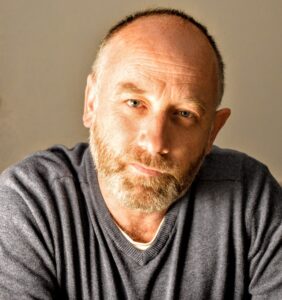 Tom O'Brien is an Irishman living in London. His Novella-in-Flash Straw Gods is published by Reflex Press, and his Novelette-in-Flash, Homemade Weather, with Retreat West. His work has been Pushcart and Best Microfictions nominated, and he is the winner of the 2021 NFFD NZ Best Microfiction. His flash fiction and short stories can be found in print in various anthologies such as Blink-Ink and Bath Flash Fiction (forthcoming) as well as many sites around the web including Ellipsis Zine, Reflex, Spelk and 50-Word Stories. He’s on Instagram and twitter @tomwrote and has a class on Skillshare called Introducing the Novella-in-Flash. His website is
Tom O'Brien is an Irishman living in London. His Novella-in-Flash Straw Gods is published by Reflex Press, and his Novelette-in-Flash, Homemade Weather, with Retreat West. His work has been Pushcart and Best Microfictions nominated, and he is the winner of the 2021 NFFD NZ Best Microfiction. His flash fiction and short stories can be found in print in various anthologies such as Blink-Ink and Bath Flash Fiction (forthcoming) as well as many sites around the web including Ellipsis Zine, Reflex, Spelk and 50-Word Stories. He’s on Instagram and twitter @tomwrote and has a class on Skillshare called Introducing the Novella-in-Flash. His website is 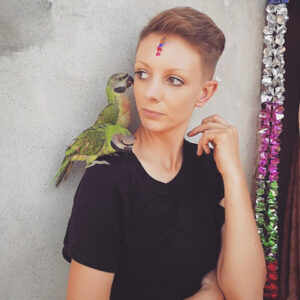 Eleanor Walsh is a PhD graduate from the University of Plymouth. She lives in Cornwall where she works as an English tutor and creative editor. Her novellas 'Birds with Horse Hearts', set in Nepal, and 'Stormbred', set in Cornwall, are available from Ad Hoc Fiction.
Eleanor Walsh is a PhD graduate from the University of Plymouth. She lives in Cornwall where she works as an English tutor and creative editor. Her novellas 'Birds with Horse Hearts', set in Nepal, and 'Stormbred', set in Cornwall, are available from Ad Hoc Fiction. 